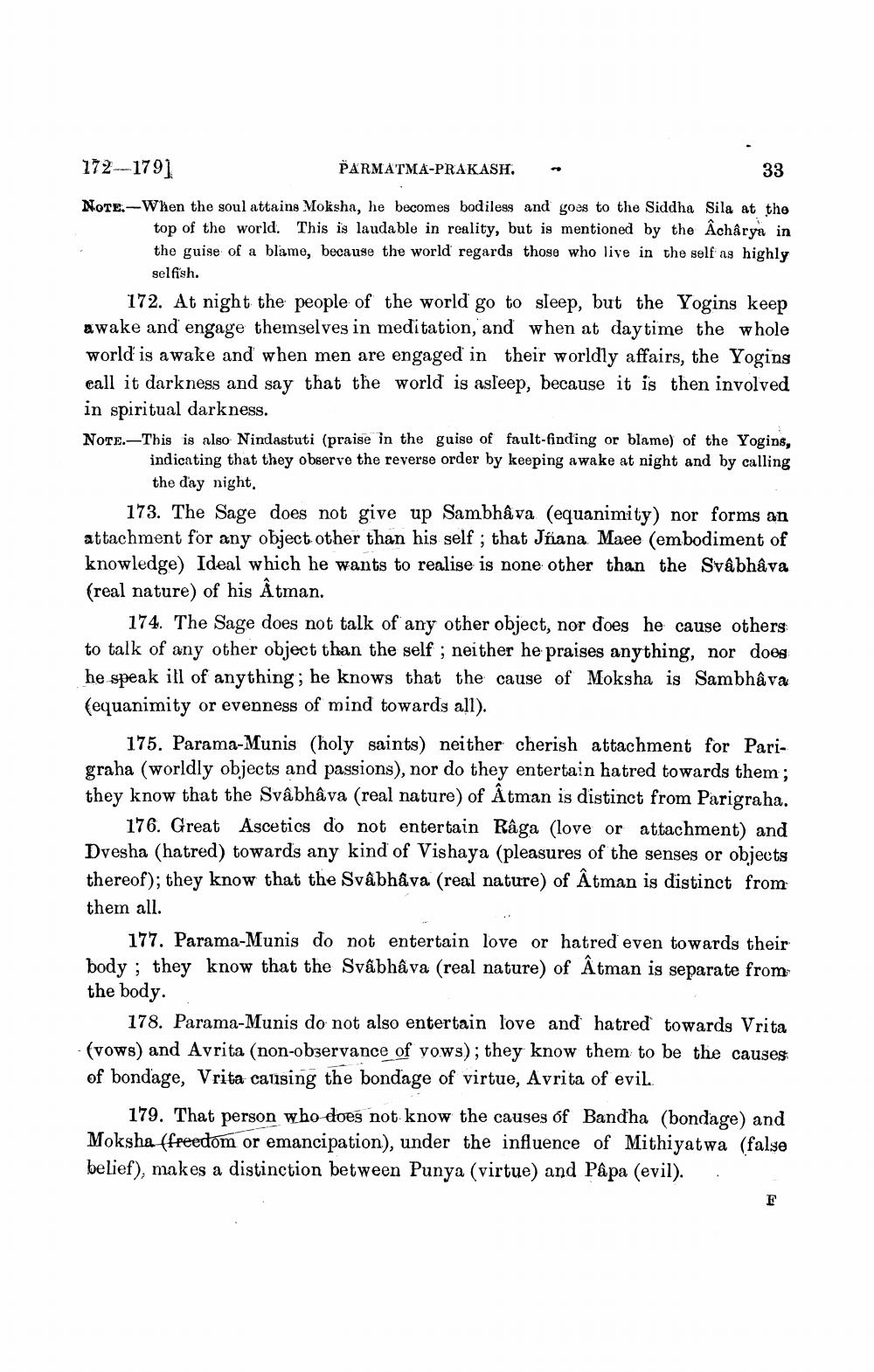________________
172-1791
PARMATMA-PRAKASH.
33
NOTE.-When the soul attains Moksha, he becomes bodiless and goes to the Siddha Sila at the
top of the world. This is laudable in reality, but is mentioned by the Acharya in the guise of a blame, because the world regards those who live in the self as highly
selfish.
172. At night the people of the world go to sleep, but the Yogins keep awake and engage themselves in meditation, and when at daytime the whole world is awake and when men are engaged in their worldly affairs, the Yogins call it darkness and say that the world is asleep, because it is then involved in spiritual darkness. NOTE.This is also Nindastuti (praise in the guise of fault-finding or blame) of the Yogins,
indicating that they observe the reverse order by keeping awake at night and by calling
the day night.
173. The Sage does not give up Sambhava (equanimity) nor forms an attachment for any object other than his self ; that Jñana Maee (embodiment of knowledge) Ideal which he wants to realise is none other than the Svâbhâva (real nature) of his Åtman.
174. The Sage does not talk of any other object, nor does he cause others to talk of any other object than the self ; neither he praises anything, nor does he speak ill of anything; he knows that the cause of Moksha is Sambhava (equanimity or evenness of mind towards all).
175. Parama-Munis (holy saints) neither cherish attachment for Parigraha (worldly objects and passions), nor do they entertain hatred towards them; they know that the Svâbhâva (real nature) of Atman is distinct from Parigraha.
176. Great Ascetics do not entertain Râga (love or attachment) and Dvesha (hatred) towards any kind of Vishaya (pleasures of the senses or objects thereof); they know that the Svâbhâva (real nature) of Atman is distinct from them all.
177. Parama-Munis do not entertain love or hatred even towards their body ; they know that the Svâbhâva (real nature) of Âtman is separate from the body.
178. Parama-Munis do not also entertain love and hatred towards Vrita - (vows) and Avrita (non-observance of vows); they know them to be the causes of bondage, Vrita causing the bondage of virtue, Avrita of evil.
179. That person who does not know the causes of Bandha (bondage) and Moksha (freedom or emancipation), under the influence of Mithiyatwa (false belief), makes a distinction between Punya (virtue) and Pâpa (evil). .




